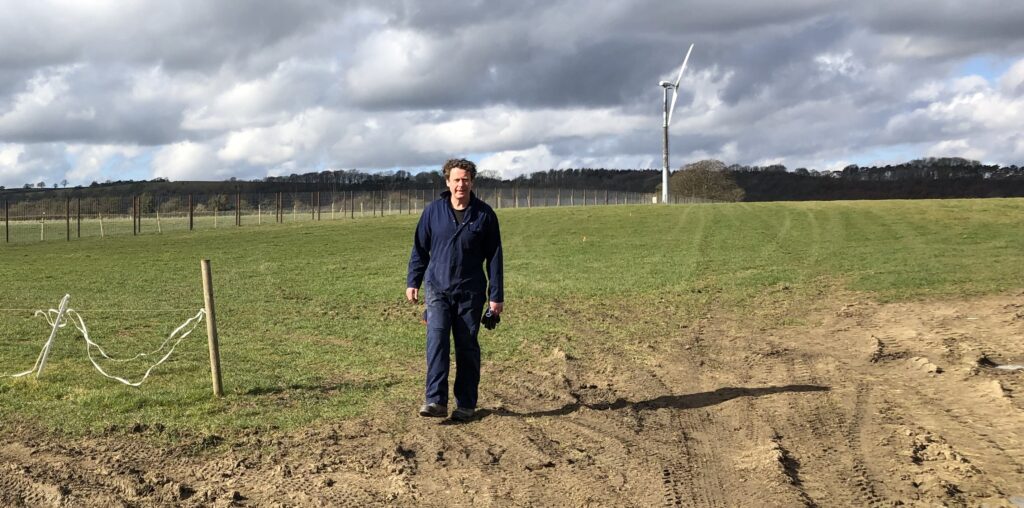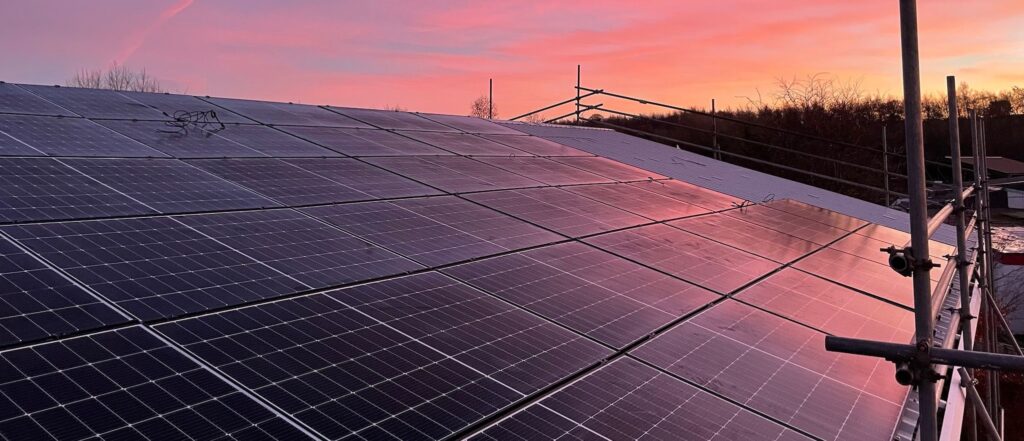As the news comes in that Malton Town Council rejected the planning application which was validated earlier this month, for the solar power farm on prime agricultural land in Old Malton, North Yorkshire – has the time come, as a society, that we must seek clarification on where this is all heading?
Whilst the climate emergency we face is beyond comprehension for most, this prospect is conflicted by the sympathy being expressed for the Sturdy family, who have fallen victim to government policy on renewables and the ongoing lack of support given to the survival of small-scale farms by the Conservative party.
With so many people connected to the debate relating to the Eden Farm Solar Proposal who are now considering whether to oppose the plans and for what reason – the question at the forefront of this campaign is whether this scheme is ‘just another way’ of a landlord making more profit from the land it will occupy, at its tenant’s expense; or whether – given the potential environmental catastrophe we face – using the land as a source of solar energy production should be prioritised over protecting the use of high-grade agricultural land for food production?
As reported this week in the media, research is clearly showing that the world’s environmental target of keeping the global temperature rise below 1.5C is now going to be almost impossible to achieve. Furthermore, the cascading effects that we will face – including shortages of food, water and energy, as well as rising costs and mass migration – will be both irreversible and unmanageable. Quite simply, the only way of minimising the climate disaster which awaits us, is to deal with the source of the problem; and that is to slash carbon emissions now.
Solar and other renewable sources of energy are the only means for decarbonising the planet and without a strategy in place – nobody will escape what is to come. What is most worrying when watching the Eden Farm campaign unfold, is that the viability of this solar farm proposal will be dictated by the level of opposition it receives; rather than by robust legislation set out in government policy, which ensures the long-term environmental gains we require; and encourages the implementation of renewables in future, which are truly beneficial.

Following the campaign closely, is Malton and Thirsk’s parliamentary candidate for the Green Party (pictured above), Richard McLane, who is a passionate supporter of all forms of renewable energy. Combining his upbringing in Ryedale on a small farm in Gilling East with his political ties – leaves him however, in a conflicting position. Richard cannot overlook the dilemma of losing top grade agricultural land to a solar farm, yet is starkly aware of the critical need for producing renewable energy without delay.
“Our current government’s record on implementation of renewables is woeful,” explains Richard McLane. “I see new developments being built up and down the country with not a single solar panel in sight. Considering our reliance on fossil fuels from other countries and the damage they are doing to the planet – this is nothing less than an act of pure negligence from those in power.”
So Where Do We Go From Here?
Improving the grid infrastructure to incentivise proposals on brownfield sites and making use of rooftops belonging to both industrial and agricultural buildings, are the only long-term strategies for implementing solar schemes. Aside from his political interests, Richard is the founder of a local manufacturing business in Helmsley and can confirm first-hand, that despite having financed a solar panel installation for the rooftops of his own industrial units (below), there still remains no clear incentive for businesses to make these investments.

“As well as offering no financial motivation for local businesses to produce solar power, it seems obscene that the government is still not committed to improving the grid infrastructure or mandating by law that new developments include solar panel installation,” continues Richard.
“All of these measures would encourage solar proposals which don’t risk jeopardising high grade agricultural land, thus in effect improving the overall environmental value and impact they will have.”
In this case, the attraction of the site is clear, due to its close proximity to the grid connections, however just a stones throw away, is the newly developed Eden Business Park in Old Malton, which occupies 30 acres of land and contains numerous industrial and office buildings, without a single solar panel installed.
For the Sturdy’s, until our elected government instigates the change required to incentivise proposals for solar energy production in the right places, the continued loss of prime agricultural land remains a genuine and inevitable threat. There can be no better time than now, that we hold the government to account and demand answers which respond to the climate threats we face.